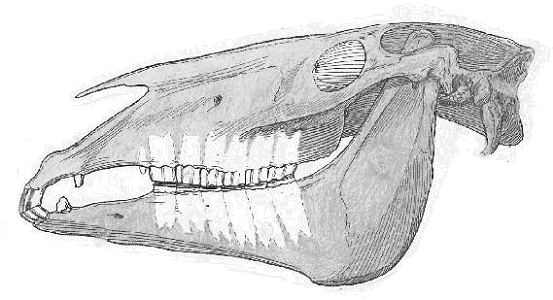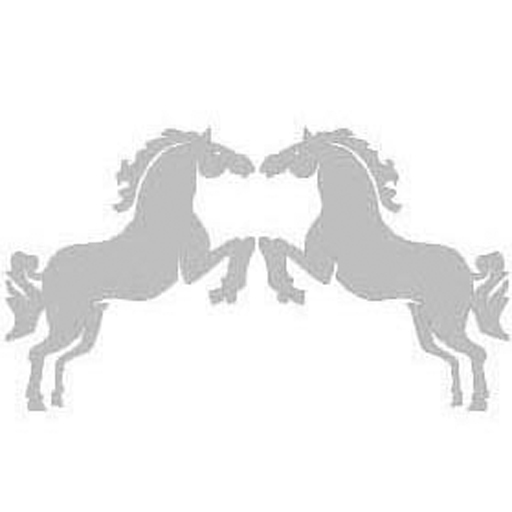
Frequently Asked Questions
Q. My horse has never shown signs of a dental problem. Why does he need yearly dental care?
A. Horses often do not show signs of pain, even when it is extreme. Time after time we see horses with razor-sharp teeth and severe ulcers that do not exhibit obvious signs of pain, such as head tossing, fighting the bit, rearing, or dropping feed. Also, dental problems can become irreversible if left untreated over a period of time.
Q. What symptoms may indicate that my horse has a dental problem?
A. Many horses show no signs at all! However, dropping feed, weight loss, resisting the bit, failure to easily collect, stiffness in one direction, rearing, head tossing, nasal discharge, draining tracts, facial swelling, or a foul odour from the mouth can indicate a dental problem.
Q. How often should I get my horse teeth checked?
A. Start to check your horses teeth from as early an age as possible, but you should start to have regular check-ups from 18 months at 6-8 month intervals. The secret is don’t leave it too long between checks. The horse or pony will get used to what is being done in it mouth. Then they will learn we are nice people.
Q. Why do horse’s teeth require regular care?
A. Between the age of 18 months and 5 years, horses lose 24 “baby” teeth and erupt up to 44 permanent teeth. Sometimes the baby teeth do not shed properly, resulting in sharp splintered fragments (caps) or interfering with normal eruption of the permanent teeth. These caps should be removed to ensure oral comfort during a critical training period and a normal permanent bite.
Unlike humans, horse’s teeth continue to erupt throughout the horse’s lifetime. As a young adult, most of the crown of the tooth is under the gum line. Only 10% of the total tooth is visible in the mouth. Over the horse’s lifetime, the tooth continues to erupt at a rate of 2-3 mm per year until the entire tooth is worn away (usually in the horse’s 20’s). The upper jaw is wider than the lower jaw. This results in uneven wear on the teeth, causing sharp points to form on the outside of the upper teeth and the inside of the lower teeth. Also, many horses have abnormal patterns of wear, which can result in abnormally long or short teeth. These conditions can become irreversible if uncorrected for long periods of time and can cause tooth fractures, infections, and tooth loss.
Selective breeding of domestic horses does not select for dental health. Also, wild horses do not live as long as domestic horses. The average lifespan of wild horses has been reported to be 12 years, while it is not uncommon for domestic horses to live into their thirties! In order to preserve the functional life of the teeth as long as possible, regular dental care is a must.
Q. Do horses have baby teeth?
A. Like humans, horses get two sets of teeth in their lifetime. The baby teeth, also called deciduous teeth, are temporary. The first deciduous incisors usually erupt before the foal is born. The last baby teeth come in when the horse is about 8 months of age. These teeth begin to be replaced by adult teeth around age 2. By age 5, most horses have their full complement of permanent teeth. Adult horses have 36 to 44 permanent teeth. The number varies because some horses have up to 4 wolf teeth (small vestigial teeth located just in front of the cheek teeth) while others have none, and mares are less likely to have canine teeth.
The following chart shows the approximate ages at which different teeth erupt.
Deciduous (Baby Teeth)
1st incisors (centrals)
2nd incisors (intermediates)
3rd incisors (corners)
1st, 2nd, & 3rd premolars (cheek teeth)
Permanent (Adult Teeth)
1st incisors (centrals)
2nd incisors (intermediates)
3rd incisors (corners)
Canines
Wolf teeth (1st premolars)
2nd premolars (1st cheek teeth)
3rd premolars (2nd cheek teeth)
4th premolars (3rd cheek teeth)
1st molars (4th cheek teeth)
2nd molars (5th cheek teeth)
3rd molars (6th cheek teeth)
Deciduous (Baby Teeth)
Birth or 1st week
4-6 weeks
6-9 months
Birth or first 2 weeks for all premolars
Deciduous (Baby Teeth)
2 1/2 years
3 1/2 years
4 1/2 years
4-5 years
5-6 months
2 1/2 years
3 years
4 years
9-12 months
2 years
3 1/2 – 4 years

Andy Watson
In the UK: Tel: +44 (0) 1807 590234 Tel: +44 (0) 1807 590331
In Germany: Tel: +49 (0) 231 9759629
Mobile: +44 (0) 7774 864331 E-mail: enquiries@globalequine.co.uk
